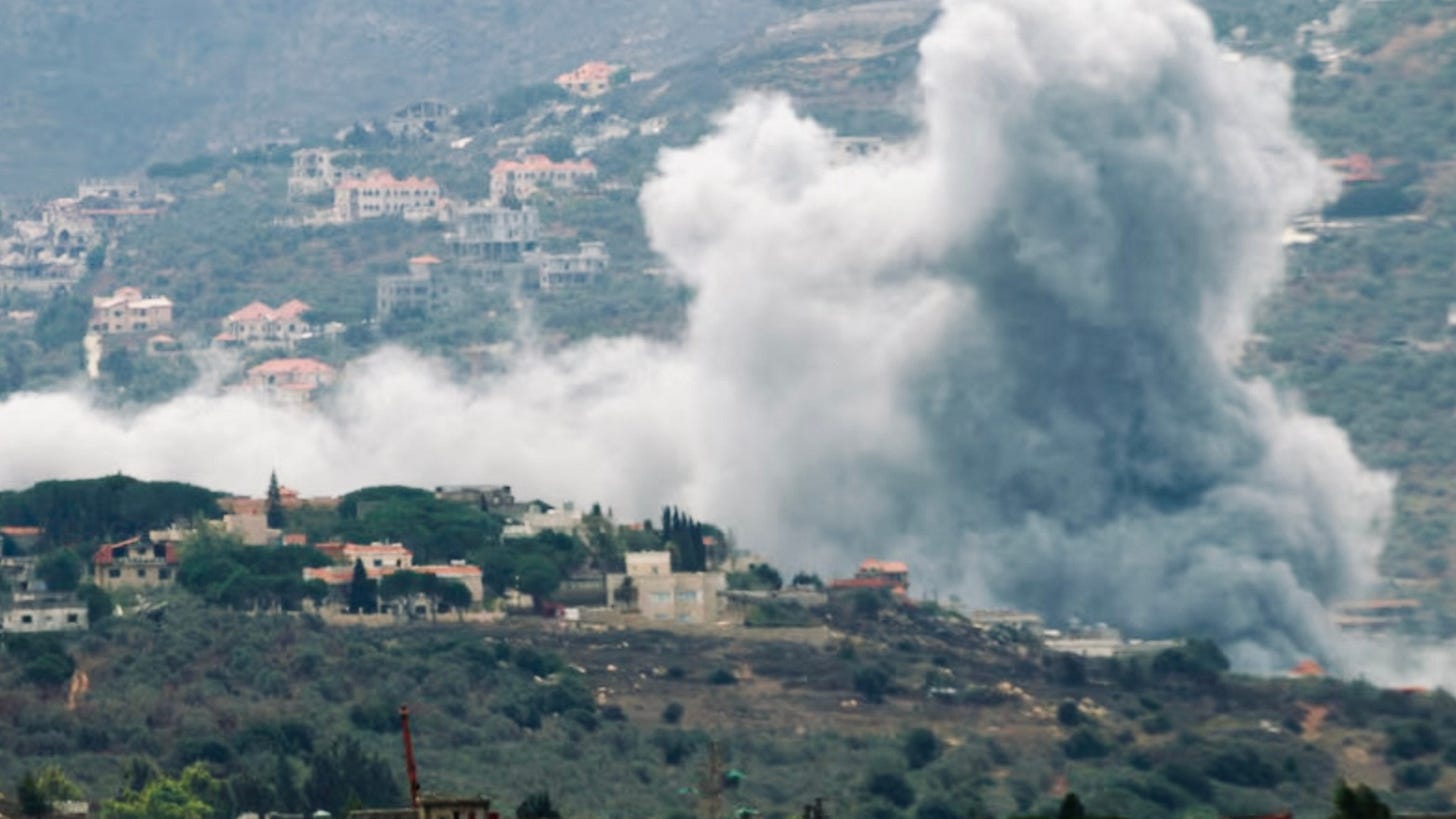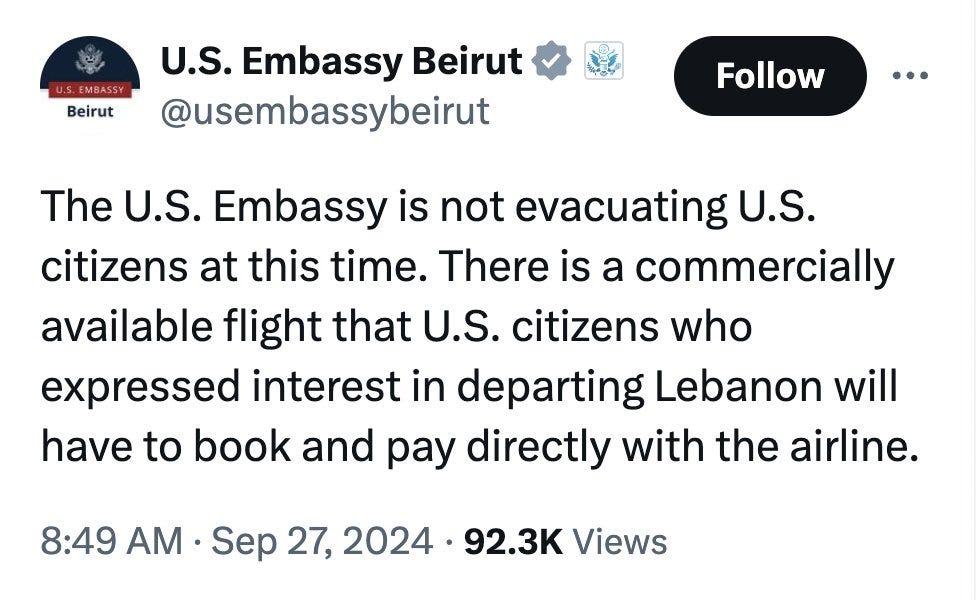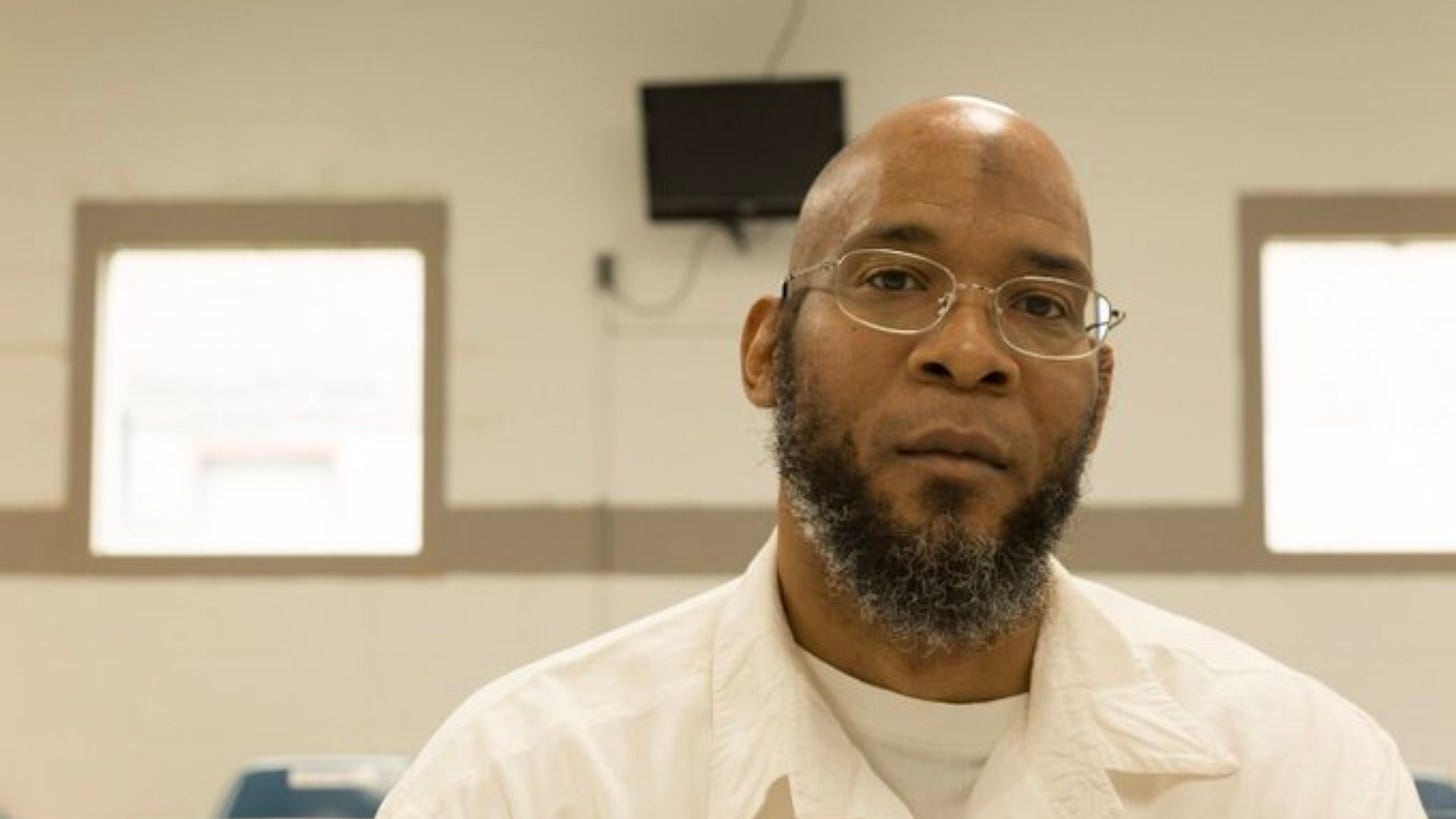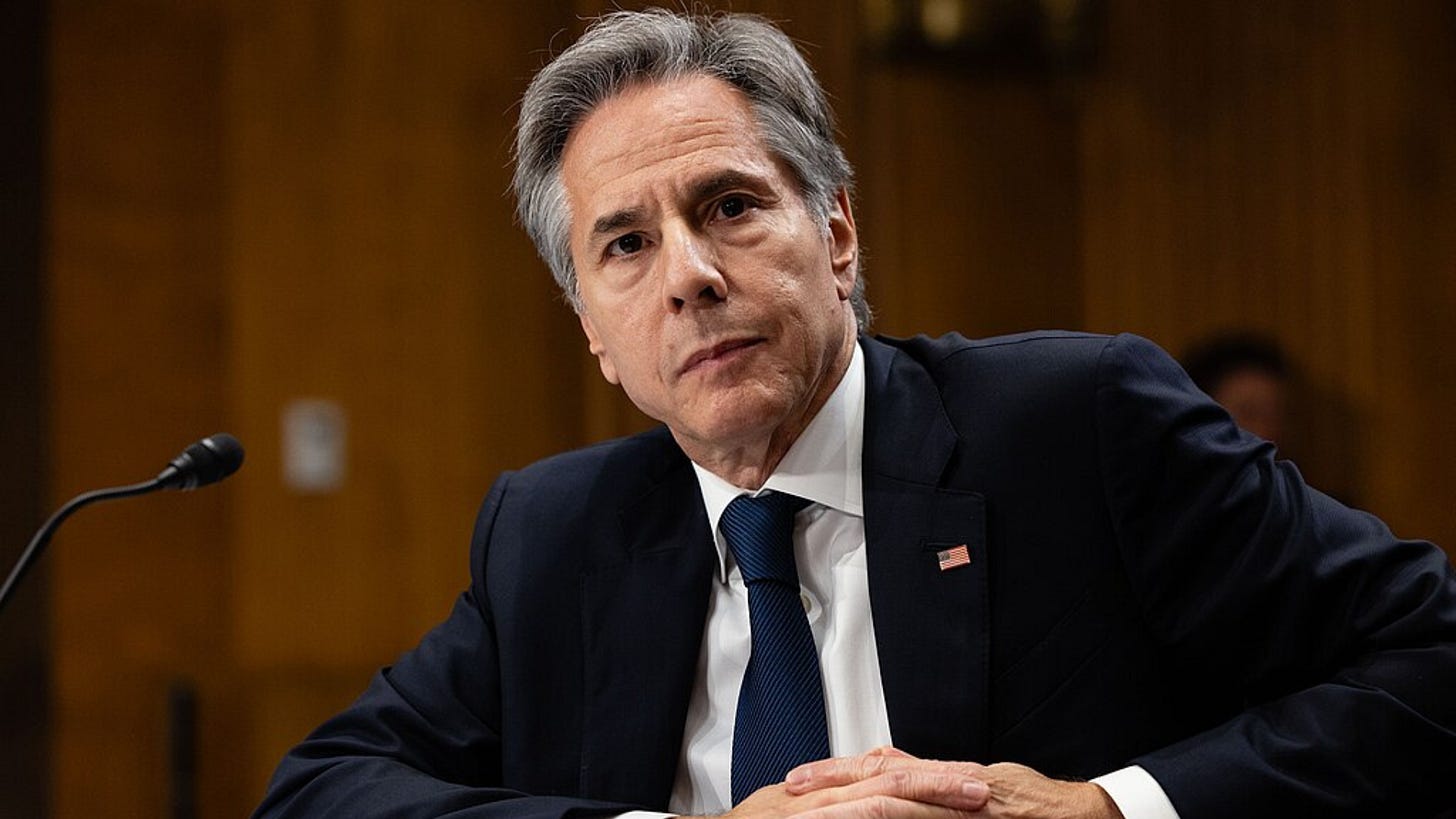5 vital stories to know this week
From rising civilian casualties in the Middle East to the 1600th execution in the U.S. since 1976, here are five stories to know this week.
Israeli airstrikes in Lebanon have killed scores of civilians, and Hezbollah’s leader, which could further escalate the conflict
Israeli airstrikes in Beirut, Lebanon on Friday targeted Hezbollah’s headquarters, leveling residential buildings, and killing 11 people, including Hezbollah’s leader Hassan Nasrallah, which experts believe could further escalate the conflict. The Israel-Hezbollah conflict, which has lasted only a few weeks, has been the deadliest day for Lebanon since the country’s civil war in 1990, killing at least 700 people, including 50 children and 94 women, and injuring more than 1,800, according to the Lebanese Health Ministry
“We are deeply alarmed by the staggering death toll within a single day, which continues to rise, and the devastating impact on civilians with almost 500,000 displaced from south Lebanon, the Bekaa and other regions that have come under intense bombardment…As Israel continues to intensify and expand its bombardment, and Hezbollah continues to launch attacks into Israel, all parties to the conflict must respect international humanitarian law and take all feasible precautions to protect civilian lives,” said Erika Guevara Rosas, Senior Director for Research, Advocacy, Policy and Campaigns at Amnesty International.
NOW: IDF prepares to invade southern Lebanon as 2 more Hezbollah leaders are presumed dead, from NPR
The U.S. is not funding charter flights to help U.S. citizens flee Lebanon, but they did for US citizens in Israel after Oct. 7
The U.S. Embassy in Lebanon has not offered charter flights to help U.S. citizens leave the country, despite the escalating conflict between Israel and Hezbollah, which has killed scores of civilians. The move sparked outrage on social media, including from Zeteo’s Prem Thakker, who highlighted the hypocrisy of this stance, noting that following Hamas’ attack on October 7, the U.S. provided free charter flights for U.S. citizens wanting to flee Israel.
In a statement, the U.S. Embassy in Lebanon urged those who wish to depart the country to “book any ticket available to them, even if that flight does not depart immediately or does not follow their first-choice route.”
They also advised that U.S. citizens lacking funds to return to the United States could contact the embassy for financial assistance to purchase tickets with repatriation loans.
TUT contacted the State Department for a comment on the decision to deny similar aid to U.S. citizens in Lebanon but has yet to receive a response.
Missouri executes Marcellus Williams despite lack of forensic evidence and opposition from the victim’s family
Missouri executed Marcellus “Khaliifah” Williams on Tuesday, marking the 1,600th execution in the U.S. since the Supreme Court reinstated the death penalty in 1976.
Despite no forensic evidence linking him to the 1998 murder of Lisha Gayle, a social worker and former journalist, state officials proceeded with the execution, overriding objections from the St. Louis County Prosecutor’s office, which had sought to overturn his conviction. Furthermore, allegations of racial bias in jury selection arose, with the prosecutor admitting he excluded a Black juror because he "looked like Williams' brother," leaving a predominantly white jury to decide his fate.
The victim’s family, several jurors, and the original prosecutor all opposed the execution.
Williams, who served as an imam and poet during his time on death row, leaves behind a legacy that questions the fairness and humanity of the U.S. death penalty system.
Israel deliberately blocked humanitarian aid to Gaza,two government bodies concluded. Antony Blinken rejected them.
Emails obtained by ProPublica reveal that two leading U.S. agencies on humanitarian aid, the U.S. Agency for International Development (USAID) and the State Department's Bureau of Population, Refugees, and Migration, informed Secretary of State Antony Blinken that Israel had deliberately blocked deliveries of food and medicine into Gaza, which is a violation of the U.S. Foreign Assistance Act, a law that prohibits U.S. military aid to any country obstructing US. humanitarian assistance.
The agencies’ warning came in the form of a detailed 17-page memo describing instances of Israeli interference with aid efforts, including the destruction of agricultural structures, killing of aid workers, destorying ambulances and hospitals, and preventing trucks carrying essential supplies from entering Gaza.
Despite these concerns, days later, Secretary Blinken told Congress that the “U.S. government did not assess that Israel was restricting the delivery of humanitarian aid”, allowing the flow of arms to continue.
“We do not currently assess that the Israeli government is prohibiting or otherwise restricting the transport or delivery of U.S. humanitarian assistance,” Blinken told Congress on May 10.
US public schools banned 10,000 books in the most recent academic year, which were mostly about the LGBTQ+ community
During the 2023-24 school year, over 10,000 books were fully removed or at least temporarily, from U.S. public schools—a figure three times higher than the previous year, according to PEN America. LGBTQ+ content or books written by and for LGBTQ+ individuals were overwhelmingly targeted in these challenges, with most of them coming from conservative groups who argued these books contained “sexually explicit content.”
Of the top 10 most challenged books in 2023, seven were labeled as containing "sexually explicit" material. The removal of these books has sparked a national conversation about the role of LGBTQ+ narratives in education, and the impact of banning literature on young readers’ understanding of diverse experiences.
Some of the ban books included:
"Gender Queer: A Memoir" by Maia Kobabe
"All Boys Aren't Blue" by George M. Johnson,
"Flamer" by Mike Curato






